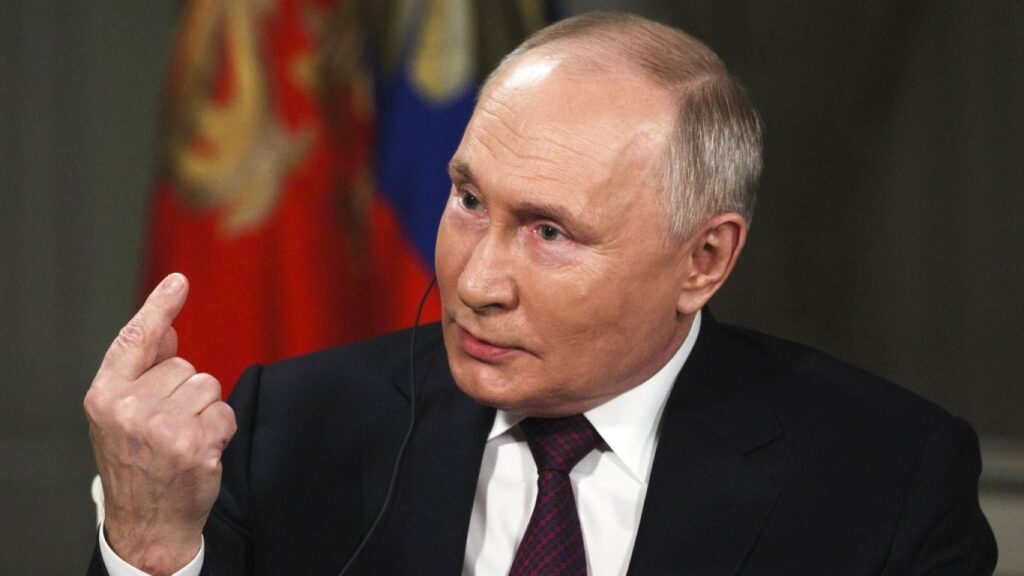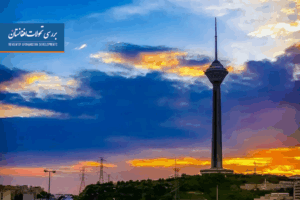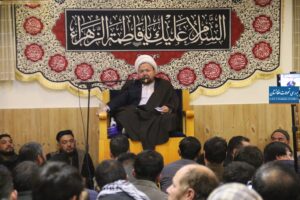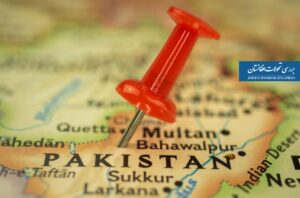Review of Afghanistan developments
The formal recognition of a government, particularly by significant global powers, is regarded as a pivotal moment in international relations. In this context, Russia’s official recognition of the Taliban government as the exclusive governing authority in Afghanistan carries consequences for geopolitical, security, and economic dynamics both regionally and globally.
The implicit and cognitive consensus among the nations in the region was to engage in collective efforts to formally recognition the Taliban government; however, Russia, with its pragmatic stance, advanced ahead of its counterparts in this matter. By overcoming this four-year stalemate, Russia aimed to demonstrate to public opinion that it holds a dominant position in steering regional affairs. With the initiation of the recognition process for Russia and diplomatic concessions granted to the Taliban government, new reciprocal expectations have now arisen between Moscow and Kabul, which will be analyzed in this article.
Russia’s expectations from the Taliban government
The Taliban government successfully established a new order in Afghanistan following the withdrawal of US and NATO forces. This new order has largely aligned itself with the regional dynamics. According to political science’s systems theory, the sustainability of this new Afghan order is dependent on its ability to adapt and conform to its surrounding environment. This theory posits that, despite the diplomatic benefits gained from Russian recognition, the Taliban will face challenges if it fails to adjust to the regional context. In contrast, the previous Afghan government, despite receiving global recognition, either could not leverage developments to its advantage or was unwilling to adapt to the regional order, ultimately leading to its downfall.
In spite of the various inducements and intimidations from Western countries, the Taliban government has thus far upheld its connection to the regional framework, which is why no threats have emerged from Afghan territory against this regional order. Although there have been proposals for a new order in post-American Afghanistan, the country has remained in a state of isolation and impasse regarding official recognition for almost four years. Consequently, Russia’s formal recognition of the Taliban government can also be seen as a defeat of Afghanistan’s political isolation.
Russia’s decision to recognize the Taliban government stems from an ongoing series of actions and reactions, along with a framework of mutual expectations and commitments. This behavior suggests that following the withdrawal of American and NATO forces from Afghanistan and the subsequent strengthening of Taliban authority, Russia recognized its national interests in adapting to the new realities in Afghanistan and engaging with the ruling regime to safeguard its interests and security beyond Central Asia’s borders. Within Russia’s foreign policy framework, the rising insecurity and terrorism in Afghanistan may pose a direct threat to the safety of Russia and its allies in the Eurasian region.
- Through this strategy, Russia aims to thwart the incursion of extremist and terrorist organizations like ISIS Khorasan into its peripheral borders by fostering security collaboration and creating information channels with the Taliban government. Consequently, acknowledging the Taliban government would facilitate a closer security partnership between Kabul and Moscow, thereby effectively incorporating Kabul into Russia’s regional security framework.
In exchange for resolving the impasse regarding the recognizing of the Taliban government, Moscow anticipates that Kabul will provide its own unique benefits compared to China, Pakistan, India, Iran, the United States, and European nations. Nevertheless, the uncertainty and challenge that Russia encounters lies in determining who will emerge victorious or suffer losses in this political arena, particularly if Russia’s competitors present a special support package to the Taliban government or if unforeseen events transpire. Only time will reveal the outcome.
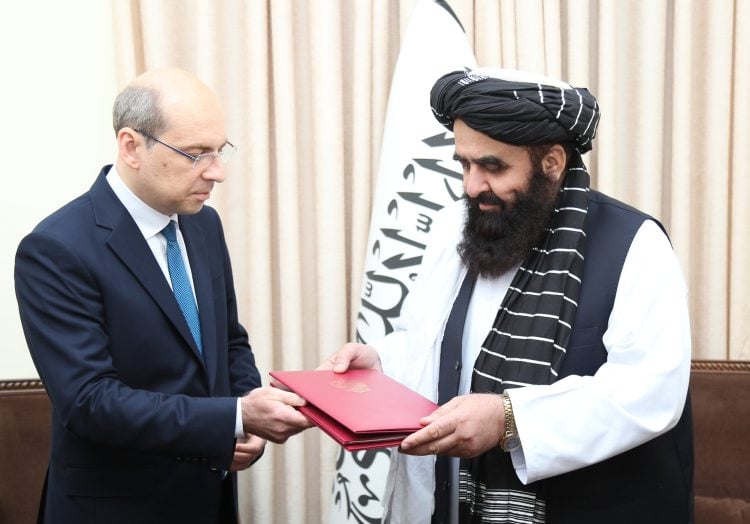
The Taliban government’s expectations from Russia
The Moscow format, which was initiated by Russia, has enhanced the relationship between the Taliban and the Kremlin, positioning them as political allies. Furthermore, Russia’s decision to recognize the Taliban government can be seen as a manifestation of a political alliance between Kabul and Moscow.
The recognition of the Taliban government and the transition towards political unity between Kabul and Moscow, while representing a significant diplomatic advantage for the Taliban regime, is not without threats from the Western bloc regarding this bold move between Moscow and Kabul. Consequently, the Taliban government undoubtedly harbors expectations from Russia, as a global power, which are viewed as enhancements to the strengthening of the political alliance between Kabul and Moscow.
The Taliban government expect that Moscow will motivate and influence the Central Asian nations to recognize its governance. Kabul understands that without this recognition from the Central Asian states, Russia’s desired configuration in regional politics will remain fragmented and unfulfilled. The Islamic Emirate looks to Russia, via the Shanghai Cooperation Organization, to integrate the Islamic Emirate into regional dynamics as a legitimate participant, thereby alleviating political and security pressures.
In the economic sphere, Kabul anticipates that Moscow will play a significant role in linking Central Asia to South Asia through rail transport corridors that traverse Afghanistan. Furthermore, it is expected that Moscow will invest in Afghanistan’s resources and infrastructure to diminish the country’s reliance on foreign aid.
The Taliban government has a more significant expectation from Moscow, which, as a major global power within the United Nations, the Security Council, and various other international organizations, is anticipated to play a crucial role in legal and economic issues, the removal of banking sanctions, and the revival of reconstruction projects in Afghanistan.
Although Russia is keen on overseeing developments in the region and Afghanistan, it appears that this nation alone is unable to fulfill or handle the extensive expectations of the Taliban government unless it regards the events and crises in Afghanistan as integral to the regional issues and addresses them through a collaborative regional approach.
On the other hand, Moscow, as a result of its engagement in the Ukrainian conflict, is aiming to address additional security and political matters, with the possibility of providing economic assistance to Afghanistan emerging in the aftermath of the Ukrainian war. In essence, Russia intends to engage fully in its new relationship with the Taliban government, although it will not implement all strategies simultaneously, opting instead for a gradual and step by step approach.
Related articles
Analyzing Russia’s recognition of the Taliban government
Results of removing the Taliban from Russia’s terrorist list
Conclusion
Russia’s official recognition of the Islamic Emirate of Afghanistan represents a crucial advancement with deep and extensive implications across multiple dimensions. This development offers a chance to reshape Moscow’s position both regionally and globally, while simultaneously presenting political, security, and humanitarian challenges that extend beyond the governance framework established by the Taliban.
The outcome of this course will be contingent upon the future actions of the Taliban government.


